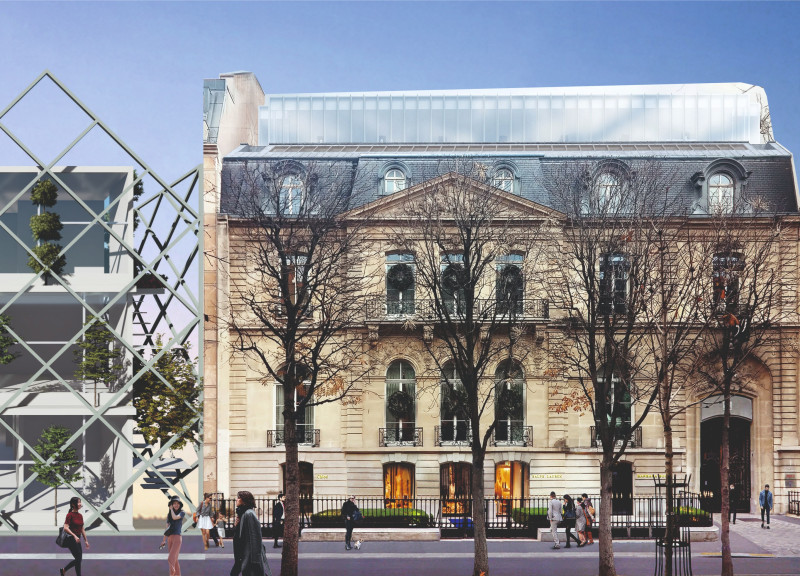5 key facts about this project
The design focuses on modular housing that uses golden ratios to improve spatial layout for different types of households, including singles, couples, and families. Located in Paris, the concept blends modern living solutions with elements of the city’s rich cultural heritage. The goal is to create not only functional homes but also spaces that resonate with the historic context, enhancing the urban landscape in which they exist.
Modular System
Three different housing types make up the design. The family module measures 21 feet by 13 feet, with internal spaces divided into 8-foot and 5-foot sections. Similarly, the couple module offers the same dimensions, making efficient use of space for two people. There is also a single module, which is 13 feet by 2 feet by 13 feet, and it applies the same proportional layout. This consistency ensures a unified approach across multiple housing options.
Flexibility and Adaptability
Flexibility is a key feature of these modular homes. They can fit into existing buildings or be arranged in various combinations within a single block. This ability to adapt is particularly relevant in addressing modern housing challenges. It allows for an effective use of space, enabling residents to find living arrangements that can change according to their needs.
Cultural Context and Materiality
The design reflects contemporary styles while honoring the essence of Paris. Fast-growing engineered timber is used for the structure, emphasizing sustainability in construction. The facade is made with glass reinforced plastic (GRP) frames that are shaped from recycled materials. This choice aligns with environmental considerations and showcases innovative building practices.
The design emphasizes natural light, featuring well-placed windows that allow sunlight to fill the interiors. This focus enhances the overall experience of the spaces while reinforcing the project’s commitment to vibrant living environments. The thoughtful arrangement of these windows plays a significant role in making the homes feel welcoming and open.


























